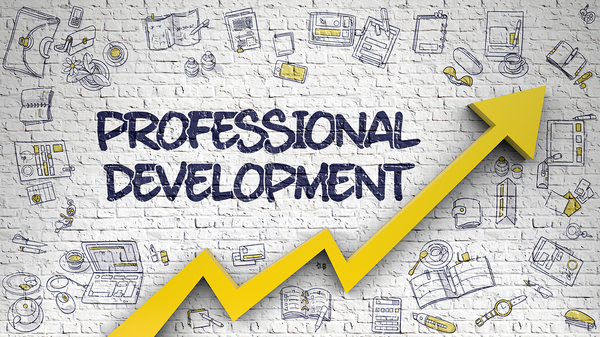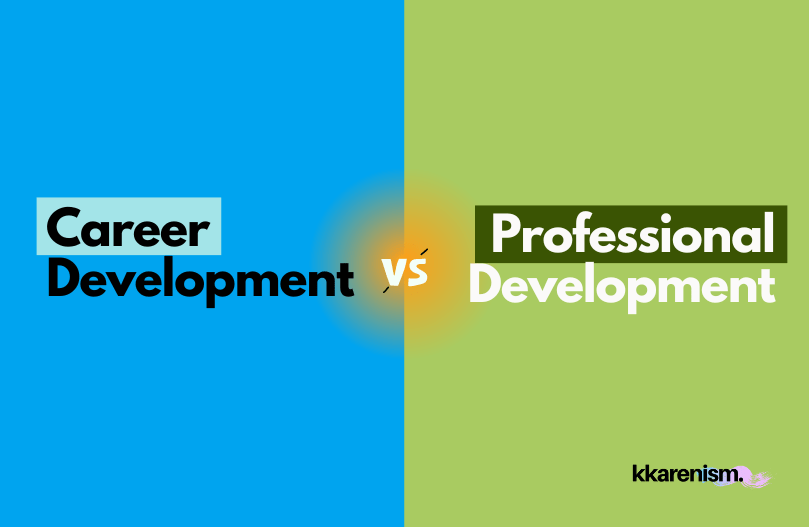Career and Professional Development: Unlocking Your Path to Success

In today’s ever-changing professional landscape, the terms career development and professional development are often used interchangeably, but they represent different aspects of growth. Whether you’re just starting in your field or you’re looking to advance, understanding the distinction and the importance of each can significantly impact your career trajectory. In this article, we’ll dive deep into the concepts of career development and professional development, and explore how both are essential to achieving long-term success.
What is Career Development?
Career development is the process of managing your career through continual learning, training, and advancement. It’s about making intentional, strategic decisions that guide your career path. Career development encompasses everything from exploring job opportunities, setting long-term goals, and finding the right position, to advancing in your current role or switching careers altogether.
It’s not just about getting the next job; it’s about having a vision for where you want to go and planning how to get there. Career development includes:
– Setting career goals: Short, medium, and long-term goals to keep you motivated and on track.
– Exploring opportunities: Understanding the different career paths available and finding the one that fits your interests, skills, and values.
– Assessing personal strengths and weaknesses: Reflecting on your abilities and determining areas where you need improvement.
– Navigating challenges: Managing setbacks or obstacles in your career path and finding ways to overcome them.
Key Steps in Career Development
- Self-assessment: Identify your strengths, interests, and values.
- Goal setting: Establish clear career goals to give your career direction.
- Planning and strategizing: Develop a roadmap to help you reach your goals.
- Building experience: Seek opportunities to gain relevant experience and skills.
- Networking: Build professional relationships that open doors to opportunities.
What is Professional Development?
Professional development, on the other hand, focuses specifically on acquiring new skills, qualifications, and knowledge that directly enhance your professional performance. Unlike career development, which looks at your overall career path, professional development is about improving your performance within your current role and industry.
It involves activities such as attending workshops, earning certifications, or gaining additional qualifications that help you grow in your field. Professional development helps ensure you stay up-to-date with the latest trends, tools, and techniques relevant to your job and industry.
Importance of Professional Development
- Enhance skills: Professional development helps you stay competitive by continually enhancing your skills.
- Increase earning potential: As you build more expertise, you position yourself for higher salaries and promotions.
- Improve job satisfaction: Learning new things can reignite your passion for your job and increase your job satisfaction.
- Boost career advancement: Constantly improving your skills opens the door for new career opportunities.

Common Professional Development Activities
- Certifications and courses: Pursuing certifications or online courses related to your industry.
- Conferences and seminars: Attending industry events to network and learn from peers.
- Mentorship programs: Engaging in mentorship, either as a mentor or mentee, for knowledge sharing.
- Workshops and webinars: Participating in short-term learning events that focus on specific skill sets.
Career vs. Professional Development: What’s the Difference?
While career development and professional development are related, they have key differences.
Career Development Focuses On:
- Long-term goals and growth.
- Career planning and transitions.
- Exploring new roles, industries, and career paths.
- Looking at the bigger picture of career progress.
Professional Development Focuses On:
- Skills enhancement within your current profession.
- Staying updated with industry trends and practices.
- Improving performance on the job.
- Acquiring new certifications or qualifications.
In short, career development is about the broad view of your professional journey, while professional development is about continuously improving within your current role.
How to Blend Career and Professional Development for Success
To achieve long-term success, it’s essential to focus on both career and professional development. These two aspects work together to help you build a fulfilling career. Below are some tips for blending them effectively:
1. Set Long-Term and Short-Term Goals
It’s important to set both long-term and short-term goals. Long-term goals might be about career progression, such as becoming a manager, while short-term goals can involve learning a new skill or completing a course.
2. Invest in Continuous Learning
Whether it’s attending workshops, joining professional associations, or pursuing certifications, ongoing learning is a critical part of both career and professional development. Staying updated with the latest trends and acquiring new skills can give you a competitive edge in your career.
3. Network and Build Relationships
Networking is vital for both career and professional development. Attend industry conferences, join online groups, and build relationships with mentors. Networking opens doors to new opportunities and can offer valuable advice for professional growth.
4. Take on Challenging Projects
In your current role, seek out challenging projects that allow you to grow. Taking on responsibility for new tasks or leading teams will provide you with valuable experience that contributes to both your career and professional development.
Frequently Asked Questions
What is the best way to start career development?
The best way to start career development is by identifying your interests and strengths. Take time to explore your options and research potential career paths. Set clear, achievable goals, and create a plan to reach them.
How can I balance career and professional development?
To balance both, prioritize learning and growth opportunities that align with your long-term career goals. Regularly set aside time for professional development activities, such as workshops or courses, while also considering your overall career trajectory.
Why is networking important for career development?
Networking is crucial for career development because it connects you with mentors, peers, and professionals who can offer guidance, opportunities, and advice. It’s an effective way to open doors to new roles or career transitions.
How do I stay motivated in my career development journey?
Staying motivated requires setting clear and meaningful goals. Break larger goals into smaller, achievable tasks, and celebrate your progress. Regularly reflect on your achievements and stay focused on your long-term vision.
Conclusion
Career and professional development are both essential for long-term success. While career development involves setting and achieving overarching career goals, professional development ensures you’re continuously enhancing your skills and staying relevant in your field. By focusing on both aspects, you’ll not only improve your current performance but also set yourself up for a fulfilling and progressive career path.
Remember, the journey to success is not linear — it requires planning, learning, and adapting. By strategically focusing on your career and professional growth, you can unlock endless possibilities and achieve your full potential.
For more tips on career growth, check out this helpful article on career advancement and explore the importance of continuous learning in professional development.


